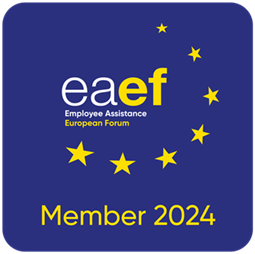The Employee Assistance Program (EAP) industry has long been a crucial pillar of support for both employees and employers. As we delve into the year 2024, it is evident that this sector is undergoing significant changes and improvements. This article will take a closer look at the past year’s developments in the EAP industry and explore the current trends that are poised to shape its future.
A Year of Transition
The year 2023 brought forth numerous challenges and opportunities for the EAP industry, largely influenced by the ongoing global pandemic. Here are some key factors that shaped the past year:
Increased Demand for Mental Health Services: The pandemic’s impact on mental health became more pronounced in 2023, leading to a surge in demand for EAP services. Employers recognized the need to provide comprehensive mental health support to their employees.
Remote Work Challenges: The rise of remote work arrangements created new challenges for employees, including feelings of isolation and difficulty in maintaining work-life balance. EAPs adapted to address these issues with virtual counseling and resources.
Customized EAPs: Employers started to move away from one-size-fits-all EAP programs and opted for customized solutions to better meet the unique needs of their workforce.
Technology Integration: Technology played a crucial role in delivering EAP services, with more providers adopting digital platforms, chatbots, and AI-driven solutions to improve accessibility and engagement.
2024 Trends Shaping the EAP Industry
As we look ahead to 2024, several trends are emerging that will impact the EAP industry in profound ways:
Holistic Well-being: EAPs are expanding their focus beyond mental health to encompass holistic well-being, including physical health, financial wellness, and personal development. This approach recognizes that overall wellness is interconnected and requires a comprehensive strategy.
Greater Emphasis on Diversity, Equity, and Inclusion (DEI): Companies are prioritizing DEI initiatives within their EAPs. Culturally sensitive and inclusive services are becoming the norm, ensuring that EAPs are accessible and effective for employees of all backgrounds.
Enhanced Data Analytics: EAP providers are increasingly using data analytics to better understand employee needs, track usage patterns, and measure program effectiveness. This data-driven approach allows for continuous improvement and personalized services.
Teletherapy and Virtual Support: Remote work remains a prominent feature of the employment landscape, leading EAPs to continue investing in virtual counseling and support options. This trend will persist as employees expect more flexible service delivery.
Expansion of Mental Health Resources: EAPs will further expand their mental health offerings to include preventive measures, such as stress management workshops, resilience training, and meditation and mindfulness apps.
Increased Privacy and Security Measures: With the digitalization of EAP services, protecting employee data and maintaining confidentiality will be paramount. EAP providers will invest in robust security measures to safeguard sensitive information.
EAP Integration with Benefits Packages: Employers are recognizing the value of integrating EAPs seamlessly into their benefits packages. This not only promotes utilization but also underscores the importance of mental health and well-being within the organization.
Remote Work Challenges: As remote work continues to evolve, EAPs will focus on addressing the unique challenges associated with remote and hybrid work environments, including isolation, burnout, and disconnection.
Conclusion
The Employee Assistance Program industry has evolved significantly in response to the challenges of the past year and the changing needs of the workforce. In 2024 and beyond, EAPs will continue to adapt and innovate to provide comprehensive support for employees in a rapidly changing work landscape. Employers who invest in holistic well-being, embrace technology, and prioritize diversity and inclusion within their EAP offerings will be better positioned to attract and retain top talent while fostering a healthier and more productive workforce.



